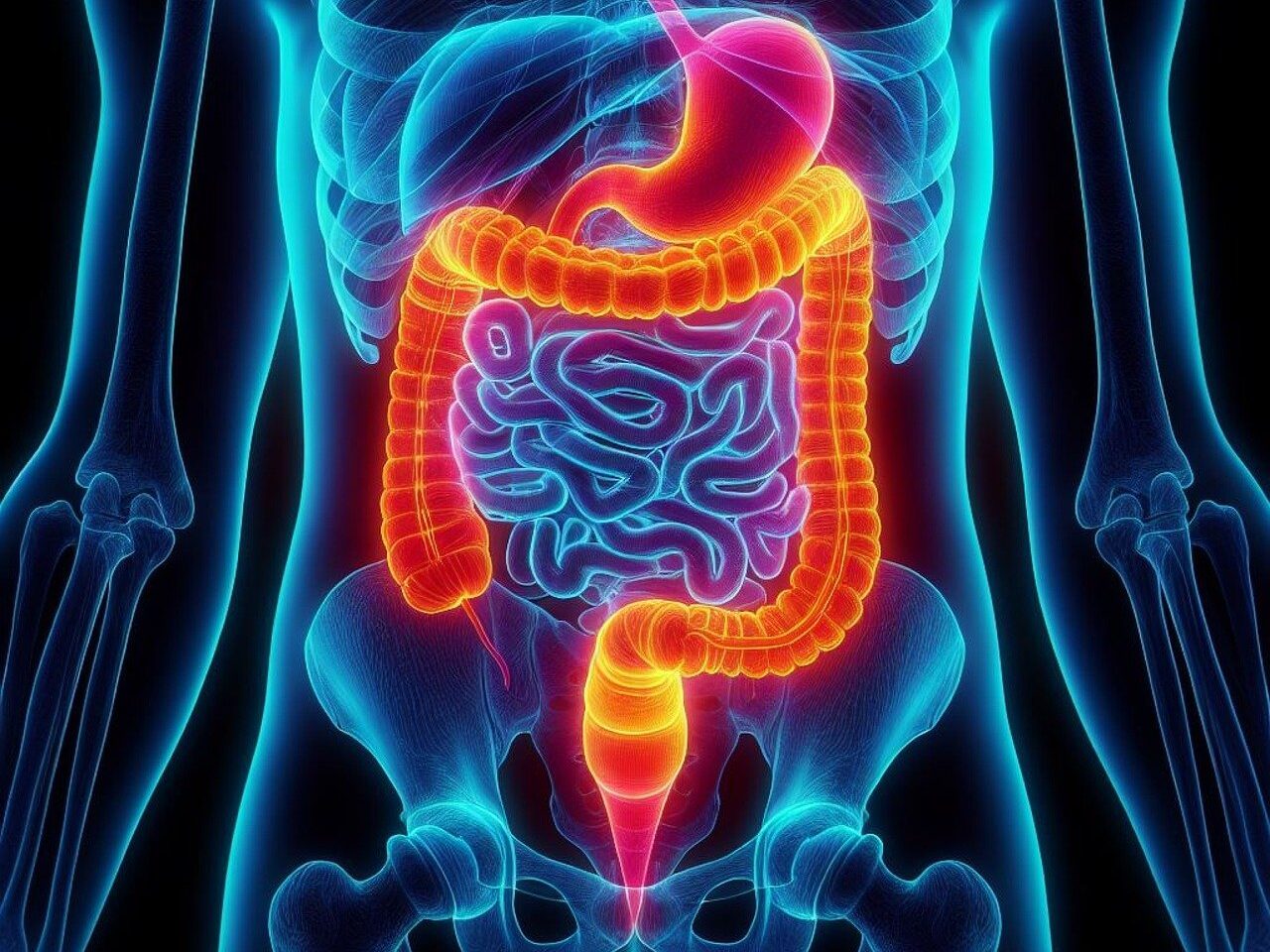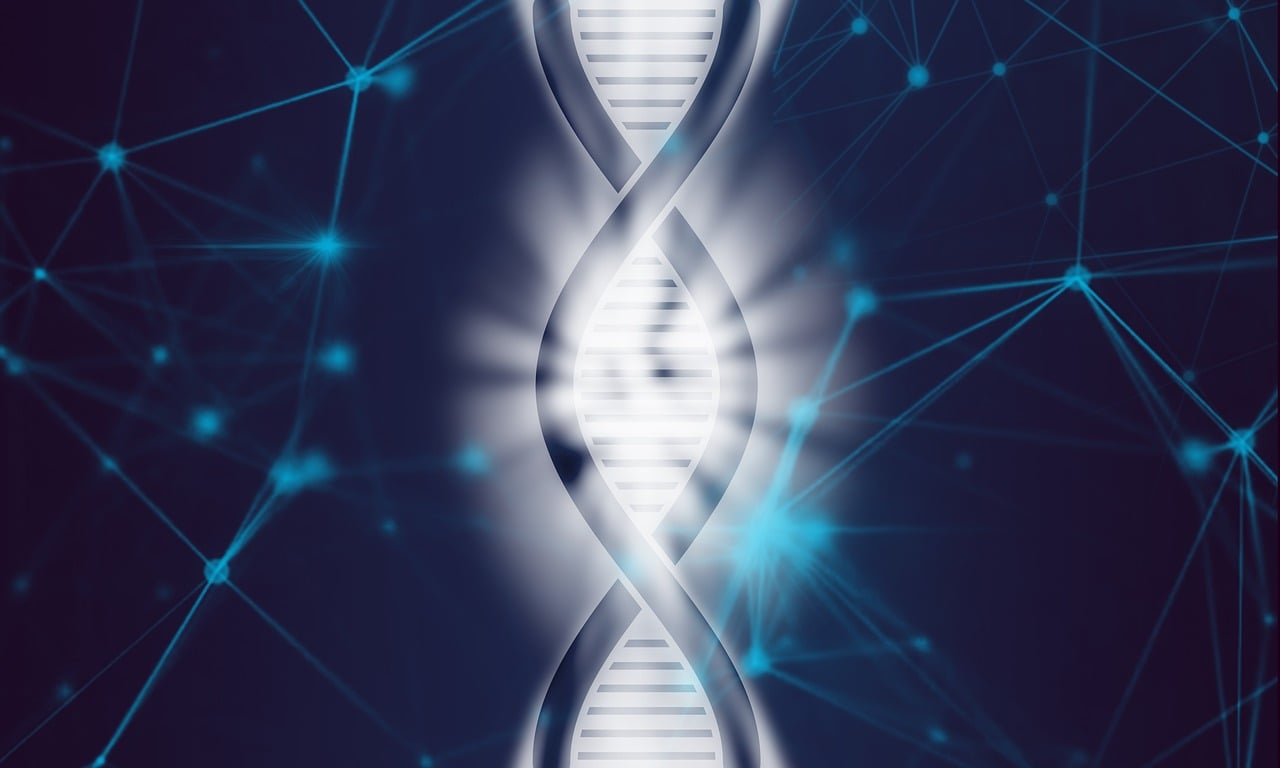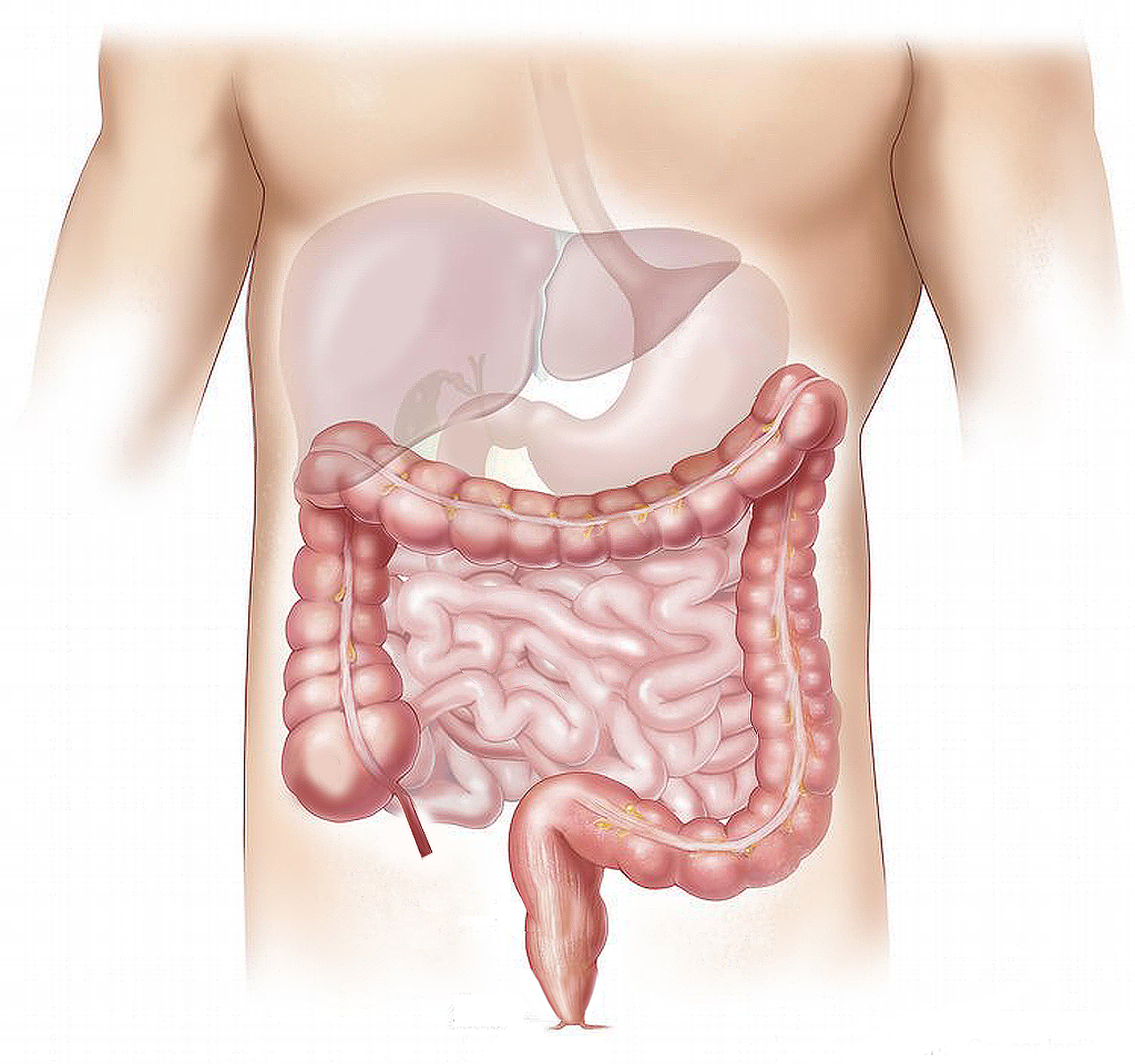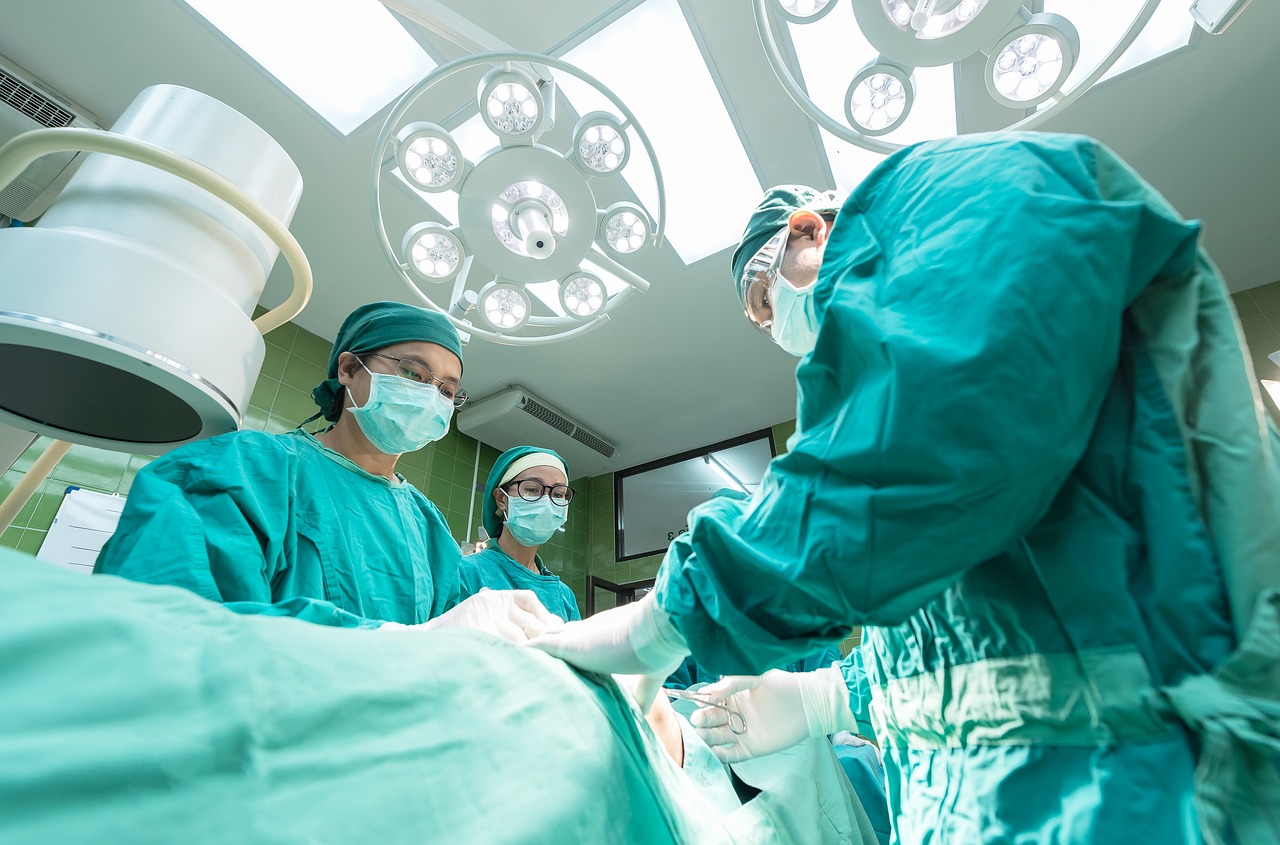Colon cancer, also known as colorectal cancer (CR), is a frequently diagnosed malignant disease. The cancer associated with the colon and large intestine is a significant problem and cause of mortality among young people in Western countries.
Factors that increase the risk of this type of cancer include poor dietary habits and behavioral factors. Colon cancer in its early stages may not cause any symptoms. Typical early symptoms include rectal bleeding, diarrhea, and various gastrointestinal problems.
The most important prognostic factor that increases prognosis is the stage at diagnosis. Therefore, preventive examinations are essential and can help with early diagnosis. The treatment method for colorectal cancer depends on the stage of the disease at the time of diagnosis, and the primary treatment for colorectal cancer is surgery.

Colorectal cancer (CRC) is a disease whose incidence varies around the world but is higher in developed countries than in non-industrialized countries. Of all cancers, it is the second most common cause of death in the United States![]() . Because of these statistics, it can be concluded that colorectal cancer is a common affliction with fatal consequences. It is, therefore, worth reviewing the risk factors that increase the possibility of developing colon cancer.
. Because of these statistics, it can be concluded that colorectal cancer is a common affliction with fatal consequences. It is, therefore, worth reviewing the risk factors that increase the possibility of developing colon cancer.
CRC is linked to environmental and genetic factors. Lifestyle and eating habits are also essential for this disease. There is not much difference in the incidence of this type of cancer by gender, although it is more common in men than in women. In addition, when colon cancer develops in women – the cancer occurs in the right colon, while in men, it occurs in the left colon. Studies on racial differences![]() in genetic susceptibility to this type of cancer have not shown an effect of racial differences in increasing the incidence of the disease.
in genetic susceptibility to this type of cancer have not shown an effect of racial differences in increasing the incidence of the disease.
Colon cancer, in some cases, has an inherited form. CRC is an autosomal dominantly inherited disease. The occurrence of colon cancer in family members in the first line of kinship significantly increases the risk. In the case of colon cancer, the presence of mutations in several genes that determine the increased risk of the disease can be determined. The change of a normal colonic epithelium into a precancerous lesion and then into an invasive cancer requires the accumulation of genetic mutations. Genetic mutations can be acquired or inherited. In addition, chromosomal instability![]() and CpG hypermethylation
and CpG hypermethylation![]() are significant factors influencing the development of CRC.
are significant factors influencing the development of CRC.

The results of several different studies on CRC show that the disease has a strong association with environmental determinants, specifically lifestyle. First and foremost, colon cancer is associated with a bowel-loaded diet. The Western dietary pattern![]() is predisposing. The Western-style diet is rich in red and processed meat, fizzy drinks and sweets, and refined cereals and poor in fruit, vegetables, and whole-grain products. An unhealthy diet low in fiber and nutrients negatively affects the gut microbiota
is predisposing. The Western-style diet is rich in red and processed meat, fizzy drinks and sweets, and refined cereals and poor in fruit, vegetables, and whole-grain products. An unhealthy diet low in fiber and nutrients negatively affects the gut microbiota![]() , which can increase the risk of colorectal cancer. Therefore, obesity and physical inactivity are essential risk factors for CRC.
, which can increase the risk of colorectal cancer. Therefore, obesity and physical inactivity are essential risk factors for CRC.
There are different types of colon cancer, but the vast majority are adenocarcinomas. Tumors of this type are characterized by varying degrees of malignancy. The initial form of colon cancer is usually asymptomatic![]() , so only diagnostic tests can recognize the ongoing cancerous process in the body. However, some symptoms may arouse the patient's vigilance, especially if they persist over a long period. In contrast, the late presentation of colon cancer may be characterized by metastases to the liver via the portal system, to the lungs, or to neighboring structures and other sites in the body.
, so only diagnostic tests can recognize the ongoing cancerous process in the body. However, some symptoms may arouse the patient's vigilance, especially if they persist over a long period. In contrast, the late presentation of colon cancer may be characterized by metastases to the liver via the portal system, to the lungs, or to neighboring structures and other sites in the body.
Symptoms of colorectal cancer include:

Rectal bleeding can be seen by red blood flowing from the rectum. Patients on toilet paper most often notice the blood after a bowel movement. The intensity of the bleeding can range from mild to severe. Haematochezia is the medical term for the appearance of blood in the stool. Blood during a bowel movement is a warning sign that it is advisable to get checked, as it can indicate serious diseases such as rectal cancer. However, blood in the stool may be present in microscopic amounts that are unnoticeable to patients. In such situations, fecal occult blood tests are essential.
A variety of signs related to the digestive tract, including abdominal pain, can occur with colorectal cancer. Usually, the first symptom is aching or discomfort in the abdominal cavity. The pain usually occurs after a meal. Abdominal pain may be accompanied by additional signs such as bloating, constipation, and a feeling of fullness, regardless of the amount of food ingested. Over time, worsening symptoms and more severe complications may require action. In some cases, a tumor may be felt in the abdominal cavity on the left or right side, depending on the location of the cancer.
Patients with colon cancer may initially present with anemia and associated symptoms. Anemia results from slow and steady bleeding from the tumor into the lumen of the colon, which causes blood loss and progressive anemia. A more severe state of anemia occurs in the more advanced stages of CRC, and it is additionally accompanied by symptoms such as weight loss![]() , lack of appetite, and weakness.
, lack of appetite, and weakness.

Bowel obstruction is a severe symptom that may result in emergency surgery. Intestinal obstruction is a medical condition involving the stoppage of food contents through the digestive tract. The main symptoms of bowel obstruction include abdominal pain, gas retention, and vomiting. Abdominal pain in cases of intestinal obstruction can occur on both the right and left sides of the abdomen. Untreated intestinal obstruction conditions lead to the development of an acute abdomen and can be a life-threatening condition.
Peritonitis is another symptom that may require surgical intervention. It is an inflammation involving the membrane lining the entire abdominal cavity from the inside. It is a life-threatening condition that requires action. Peritoneal symptoms that may indicate inflammation are mainly severe abdominal pain, vomiting, retention of wind, and stools. The appearance of this group of symptoms should prompt prompt medical attention.
Perforation of the bowel is a condition in which the bowel wall loses continuity. Colloquially, the term is a perforation of the bowel. The result of bowel perforation is the escape of food contents into the peritoneal cavity, leading to acute abdominal symptoms. The symptoms of bowel perforation are mainly severe pain in a specific part of the abdominal cavity or the entire cavity. It rapidly increases and becomes difficult to bear. The condition is life-threatening, so prompt medical intervention is also necessary.
Colon cancer has been a frequently diagnosed disease in recent years. Appropriate investigations can diagnose colorectal cancer at an early stage, which significantly improves the prognosis. The stage of the disease at the time of diagnosis is the most important prognostic factor for survival. Tests relevant to CRC include:

A colonoscopy examines the large bowel, allowing the examiner to view the inside and assess the presence of lesions. Colonoscopy is an endoscopic examination that can be performed in people at risk of colon cancer and in patients in whom the disease is suspected. A colonoscopy is essential in diagnosing CRC because it allows a tissue biopsy to be taken for further examination.
In addition to this, the doctor can stop minor bleeding or insert a device to reduce the symptoms of obstruction caused by the cancer temporarily. In some cases, a flexible sigmoidoscopy![]() can confirm cancer. Only the terminal segment of the large bowel and the rectum are examined in this type of examination.
can confirm cancer. Only the terminal segment of the large bowel and the rectum are examined in this type of examination.
Routine screening tests can be the first step toward suspected colon cancer and early diagnosis. However, regardless of the stage of the disease, laboratory tests are important. In the diagnosis of colon cancer, a complete blood count![]() and iron tests
and iron tests![]() are performed to confirm anemia, a common symptom of the disease. In addition, liver function tests
are performed to confirm anemia, a common symptom of the disease. In addition, liver function tests![]() and coagulation tests
and coagulation tests![]() are also important. Additional tests of this type can be very useful in assessing the patient's condition.
are also important. Additional tests of this type can be very useful in assessing the patient's condition.
Further tests performed to diagnose colorectal disease are imaging studies, specifically CT scans![]() . A baseline CT scan of various body sites, such as the abdomen, thorax, and pelvis, is a cost-effective test that can assess the severity of the disease. CT scans are fundamental in showing metastases that may have occurred as a result of colorectal cancer. In addition, imaging studies are essential before surgical treatment is performed.
. A baseline CT scan of various body sites, such as the abdomen, thorax, and pelvis, is a cost-effective test that can assess the severity of the disease. CT scans are fundamental in showing metastases that may have occurred as a result of colorectal cancer. In addition, imaging studies are essential before surgical treatment is performed.
Different treatment options depend on the stage of CRC and the patient's condition. Treatment is more accessible in non-metastatic situations. The primary treatment for colon cancer (CRC) is surgery, and surgery should be considered in all cases.

For cancers with a favorable prognosis and early stage, endoscopic resection (ER)![]() is possible. ER involves local excision of the tumor using endoscopic techniques. Such an examination is characterized by being less invasive. In more advanced stages, surgical resection is performed, which involves complete resection of the tumor and potential metastases. The preferred methods include conventional open colectomy or laparoscopic colectomy. Surgery alone can be effective in patients with early-stage disease.
is possible. ER involves local excision of the tumor using endoscopic techniques. Such an examination is characterized by being less invasive. In more advanced stages, surgical resection is performed, which involves complete resection of the tumor and potential metastases. The preferred methods include conventional open colectomy or laparoscopic colectomy. Surgery alone can be effective in patients with early-stage disease.
Adjuvant therapies are complementary treatment options used after surgical treatment to eradicate metastases, reduce the risk of local recurrence and distant metastases, and improve the patient's prognosis. The type of adjuvant chemotherapy![]() depends on the patient's condition. Analysis of high-risk prognostic factors helps to distinguish patients at higher risk of recurrence. Such patients may benefit from adjuvant therapy.
depends on the patient's condition. Analysis of high-risk prognostic factors helps to distinguish patients at higher risk of recurrence. Such patients may benefit from adjuvant therapy.
Systemic therapy applies to patients in advanced stages of colorectal cancer with metastases present. Many patients with CRC will develop metastases, mainly to the liver. The prognosis in such cases is much worse, so systemic therapy is required, with the aim of treatment to alleviate symptoms, improve quality of life, and prolong survival.
Systemic therapy is a treatment to which the patient's entire body is subjected. This treatment mainly uses chemotherapy and other treatments depending on the patient's needs. Observation for symptoms, regular checking of blood parameters, and radiographic assessment are recommended. Patients should be examined frequently due to the unpleasant symptoms and psychosocial suffering.
In some cases of colon cancer, the insertion of a stoma is also an adjunctive method. A stoma is a fecal fistula that allows defecation outside the anus. The end section of the bowel is inserted into a surgically separated opening in the abdominal wall. The insertion of a stoma can be a permanent necessity or a temporary process.
A stoma is placed after surgery for protective purposes. When the cancer is too low in the bowel, it may be necessary to resect the rectum completely, and then a stoma is an irreversible procedure. People with an intestinal stoma need to take care of its care. Switching to a diet and changing eating habits is often necessary, which is also part of prevention.
Environmental factors have been noted to play a role in colon cancer. It also appears that a factor such as diet may play a significant protective role in the development of colorectal cancer. After surgery, following the dietary recommendations set by the doctor is essential to speed up patients' recovery. Diet after colorectal cancer surgery should be tailored to the individual patient's needs. An easily digestible diet![]() that will not irritate the colon is most often recommended.
that will not irritate the colon is most often recommended.
Colon cancer associated with the colon and large intestine is a significant problem and cause of mortality among young people in Western countries. Factors that increase the risk of developing this type of cancer include genetic and environmental factors. In its early stages, the disease causes no symptoms and is usually detected during screening.
Symptoms include pain, the presence of blood in the stool, as well as constipation and diarrhea. The most important prognostic factor that increases prognosis is the stage at diagnosis. The method of treatment for colorectal cancer depends on the stage of the disease at the time of diagnosis, and the primary treatment for colon cancer is surgery.